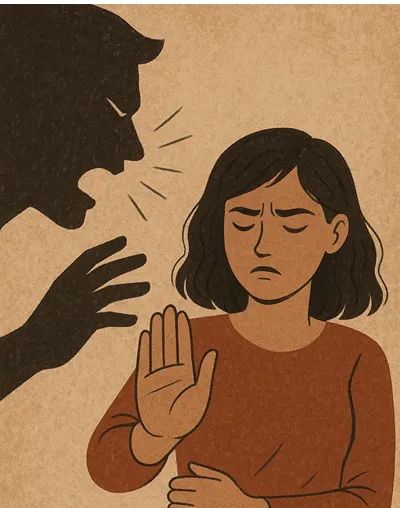
The Protection of Women from Domestic Violence Act (PWDVA), 2005, is a landmark legislation in India aimed at safeguarding women from various forms of domestic abuse. The Act provides civil remedies to victims of domestic violence, ensuring their right to live a life free from violence within the family. It recognises not only physical abuse but also emotional, sexual, and economic abuse.
Major Amendments and Updates to the Act
While the core provisions of the PWDVA remain intact, several significant updates have been introduced to enhance its effectiveness:
Expanded Definition of Domestic Violence
- The Act explicitly includes economic and emotional abuse as forms of domestic violence, broadening the scope of protection for women.
Increased Penalties for Breach of Protection Orders
- Violating protection orders can lead to stricter penalties, including imprisonment and fines, to deter offenders and ensure compliance.
Enhanced Support Mechanisms
- The establishment of one-stop centres and helplines, such as the 181 helpline, provides immediate assistance to victims, offering legal aid, medical support, and shelter.
Awareness Campaigns
- Government initiatives and public awareness campaigns aim to educate women about their rights under the Act and encourage them to seek help when needed.
Where and How to File a Complaint
Victims of domestic violence can seek redress through various avenues:
- Protection Officers: Appointed by the state, these officers assist women in filing complaints and obtaining protection orders.
- Police Stations: Women can file complaints directly at local police stations, where officers are trained to handle such cases sensitively.
- One-Stop Centres: These centres provide integrated services, including legal aid, medical assistance, and counselling.
- Online Platforms: Some states offer online portals for filing complaints and seeking assistance. (Delhi online portal)
Frequently Asked Questions (FAQs)
-
Q1. Who is eligible to seek protection under the PWDVA?
-
Any woman who is or has been in a domestic relationship and has faced domestic violence can seek protection under the Act.
-
Q2. What constitutes domestic violence under the Act?
-
Domestic violence includes physical, emotional, sexual, and economic abuse, as well as threats and harassment.
-
Q3. How can I file a complaint?
-
Complaints can be filed with protection officers, at police stations, or through one-stop centres and online platforms.
-
Q4. What reliefs can I seek under the Act?
-
Victims can seek protection orders, residence orders, monetary relief, custody orders, and compensation orders.
-
Q5. Is there a time limit to file a complaint?
-
There is no specific time limit; however, it is advisable to report incidents promptly to ensure timely intervention.
-
Q6. Can I seek protection if I am not married?
-
Yes, the Act covers women in live-in relationships as well.
-
Q7. What if the abuser violates the protection order?
-
Violating a protection order can lead to legal consequences, including imprisonment and fines.
-
Q8. Are there any charges for seeking help?
-
No, all services under the Act, including legal aid and shelter, are provided free of cost.
-
Q9. Can I seek help if I am facing emotional or economic abuse?
-
Yes, both emotional and economic abuses are recognised under the Act.
-
Q10. What support is available for children affected by domestic violence?
-
Children affected by domestic violence can seek protection and support through the same channels as women.
-
Q11. Can I seek protection if I am a senior citizen?
-
Yes, senior citizens facing domestic violence are entitled to protection under the Act.
-
Q12. What if I am unable to visit a police station or office?
-
Assistance can be sought through helplines, online platforms, or by contacting protection officers who can visit you.
-
Q13. Is there any support for women with disabilities?
-
Yes, the Act ensures that women with disabilities receive the necessary support and protection.
-
Q14. How can I stay informed about my case?
-
Regular updates can be obtained from the protection officer handling your case or through the concerned authorities.
-
Q15. What if I am facing threats or stalking?
-
Immediate protection can be sought through the Act, and authorities will take necessary actions to ensure your safety.
Add new comment